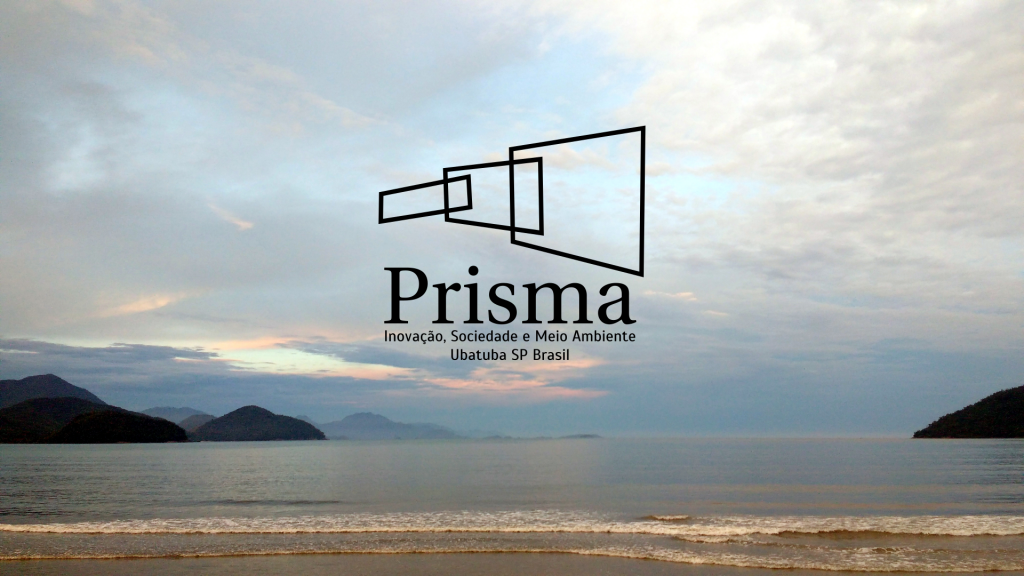Essa é uma revisão anterior do documento!
Prisma
Innovation, Society and Environment

Objective
Establish a dynamic organisation (private/nonprofit) that will offer education (both academic and informal) and develop situated research on socio-ecological innovation. Prisma will offer hybrid online/offline education programmes with presential laboratory practices. It will be based in Ubatuba, in Brazil.
MVP - minimal offer
The first iteration of Prisma will be a professional course on socio-ecological innovation with one year of duration. It will be available online, but students will be required to perform presential activities - with automatic validation from certified partners, or under evaluation on other organisations.
Formats
Prisma will base its educational offer on socio-ecological innovation around three axes:
- online individual learning itineraries;
- study groups about themes related to socio-ecological innovation in an online discussion environment;
- presential laboratories taking diverse forms: attending specific courses on partner organisations, participating on events, dedicating time to develop prototypes and perform concrete projects.
Itineraries
Itineraties is an online platform for distributed learning, providing an assortment of multimedia contents selected both by course facilitators and students themselves. Read more (portuguese only) on distributed learning and itinerários (and a list of online resources on distributed learning and related subjects).
Study Groups
Study groups promoting collective discussion and knowledge learning on relevant themes. They will be coordinated by Prisma's facilitators and pose a number of ongoing challenges for students.
Laboratories
Laboratories will be certified partner organisations in which practice-based learning and knowledge production will take place. They will either offer in-depth modules on specific themes, or bring educational challenges based on their own concrete demands for the students to solve. Some examples of potential laboratories based in Ubatuba with which Prisma already has a relation: ninho, a co-working space and centre of science and culture; a cooperative association working with recycling; three different organisations dedicated to permaculture; a technical school; a collaborative incubator of socio-ecological innovation.
Subject areas
The programme will cover a number of themes, promoting the construction of open-ended collections of contents, discussions and practical exercises.
- agroecology;
- natural health and medicinal herbs;
- circular economy;
- craftsmanship;
- digital fabrication;
- participatory politics;
- integral cooperativism and platform cooperativism;
- free, open source and appropriated technologies: technological sovereignty;
- healthy food;
- solidary economy and fair trade;
- permaculture;
- emergent urbanism;
- upcycling, maintenance and repair;
- sustainable housing;
- buen vivir;
- energy autonomy;
- low impact mobility;
- bioconstruction;
- cultures of the land and traditional cultures;
- alternative education.
Motivation
Prisma is one of the outcomes of the Ciência Aberta Ubatuba project that spent two years researching the creation and dissemination of knowledge in Ubatuba, Brazil. See more about the project below:
There are two characteristics of Ubatuba that were central to the inception of Prisma: the fact that more than 80% of the city's territory sits inside environment protection areas; the fact that the city has no university. The latter forces talented youngsters to leave the city, and they seldom come back. Not only their lifes are impacted, but the city lacks the creative strenght of talented and engaged young people. On the other hand, the natural legacy requires the city to come up with alternative paths for its socio-economical development. Prisma is based upon the idea that Ubatuba should embrace its socio-environmental aspect, as well as its diverse cultural landscape, to elaborate on such plans.
References
Steps
1. Preparation
- Incorporation of Instituto Prisma with advice from legal and fiscal consultancies
- Develop partnerships with local institutions, municipality and companies
- Develop partnerships with external parties (Brazil and abroad)
- Develop and deploy online environment for shared contents
- Hire team and develop syllabus of course: online contents, study groups, laboratories
- Open for sign-up
2. Class of 2019
- Perform the first class of Prisma socio-ecological innovation course
- Evaluate and document discoveries, obstacles and outcomes
- Improve the project for next classes
Help us quickstart Prisma
Prisma is so far a self-funded project developed by UbaLab. We could use your help, in one or more of the following:
- Financial support to help us the project;
- Send feedback on our plans, point Prisma to interesting people or organisations, or suggest relevant references or partnerships (emailing us at contato AT ubalab DOT org).
